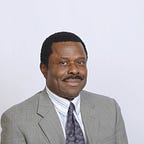How Do You Communicate Your Ideas? (13) Smell and Delivering Your Speech Presentation
Smell communicates. Odor repels. Scent appeals. Aroma attracts. Fragrances endear and seduce. Aroma is mystique and mischievous. Like fragrance, aroma is romantic; it seduces, entices, impresses and invites. Deodorant is a general odor preventive and repulsive scent combative cosmetic name for all personal care products.
Smell has synonyms in odor, scents, aroma, fragrance, ambrosia, attar, savor or savour, perfume, redolence, stench, stink, reek, whiff. Sometimes we may hear people say bouquet. In informal conversations, we have heard “funk,” “sniff” or “nose” used also as synonyms for smell. There may be other colloquialisms for smell everywhere depending on the context and the interactants.
But in polite companies, smell is usually replaced with scent, aroma, perfume, and fragrance. All other synonyms have negative and unpleasant connotations.
In the technical jargon of the profession, smell is called olfactory. The study of smell as a sub-theme in the discipline of human communication is called olfactics.
Why Do We Care?
I am writing on olfactics as a communication practitioner and consultant with multinational, multicultural, as well as multi-ethnic sensibilities and experiences. Smell communicates. Smell appeals. Smell repels. Smell attracts. Smell matters in all contexts of human communication.
As at 2016, the industry generated over $10 billion in sales around the world.
By 2021, the projected global market is estimated at 44 billion U.S. dollars.
Smell and the Public Speaker
Smell communicates in all contexts of human communication. And this is why you should care as a communicator, and practitioner or leader wherever you are.
Or, simply as a human being who cannot not communicate, smell follows you wherever you go, and with whomever you are with.
For a public speaker, it is best to know the audience and the context before choosing any of the terms for smell to communicate ideas and meanings.
But in this post I am interested in the speaker, the audience, and context as users emitters of smell.
The public speaker must smell pleasant, good, and inviting as he or she meets, mingles, and makes the rounds before and after the speaking event.
Because smell communicates a variety of meanings, it is incumbent upon the public speaker to be sensitive to the contexts as well as the audiences and the smells that swirl, or the odor that “ooze” or “reek” in the speaking event and the arena. A nauseating odor is repulsive; while a cinnamon aroma is inviting to many.
An event planner for example, cannot be careless or negligent with the locations of the dumpsters, toilets or restrooms, and in fact, the kitchen, as emitters of a variety of odors and scents.
Application and Case Study
Now, imagine yourself sitting or standing in a crowded bus in the hot regions of Africa, Asia, Middle East, South America, Central America, Australia, India, Pakistan or any other of all the hot and tropical climates, where the temperatures sometimes range in the 100–200 degrees Fahrenheit. Every one perspires profusely in these climates. In the bus that you are in, there is a wave of odors, aromas, smells, fragrances coming at you and swirling around you. You are uncomfortable. You cannot say anything to anybody. This is a public mode of transportation. You are squeezed and swarmed and squashed from left, right, back, front. From all sides you have no escape route. You are stuck in smell. It is body odor!!!
“Ok.” You may say, “I am never going to ride the public bus in any ‘third world country’. There is Uber. There are cabs everywhere.” But welcome to the world of heat and smell.
So, in your taxi cab, the odor from the previous passenger or client is still lingering. Now you tell the cab driver to stop so you can catch another one. You did. And the smell is there. But this time it is from the cab driver. You are so polite and culturally intelligent. And you do not tell the cab driver what you think. You are running against time. So you cover your nose with your hands. But smell cannot be prevented with your hands. It is in the air. How do you block air flow in a confined space like the taxi cab in a “third world” nation!
You can’t wait to share your experiences with your international experts you are with, in the office at where you all are meeting. The experience resonates. in the choral exclamation, “Hmmm, me too! I had similar experience the other day. It is everywhere in this place. Everybody has one kind of body odor or the other. I guess it is in the air.” You all look at each other and just shook your shoulders and said, “Oh well, that’s just the way it is here.”
It is not the mode of transportation that is the source of smell. It is the climate. It is the temperature. The odor comes from humans.
In Sum
Surprisingly, we all have body odors.
When mixed with extreme climatic temperatures of the tropics or the desert regions all around the world, the smell sends (not communicates) different messages.
And we all have our preferences and distastes for all kinds of smells, odors, aromas or fragrances.
Smell is a means as well as a mode of communication that speaks in every language, gender, dialect, country, ethnicity, and nationality. It is part of the personal hygiene and self-awareness that sends messages to the audience in and out of the speaking arena.
CALL TO ACTION
If you like this read, recommend, comment, and click the heart sign to share it with others. Follow me at Medium, Twitter, Facebook, LinkedIn, Instagram, Google+
I am available for speaking, consulting, seminars, workshops, conferences, and events presentations’ as well as individual, private, corporate, non-profit, and community speech presentations, speech writing and coaching. Reach me at www.solomonwobotetukudo.com
Buy my books at Amazon.com
